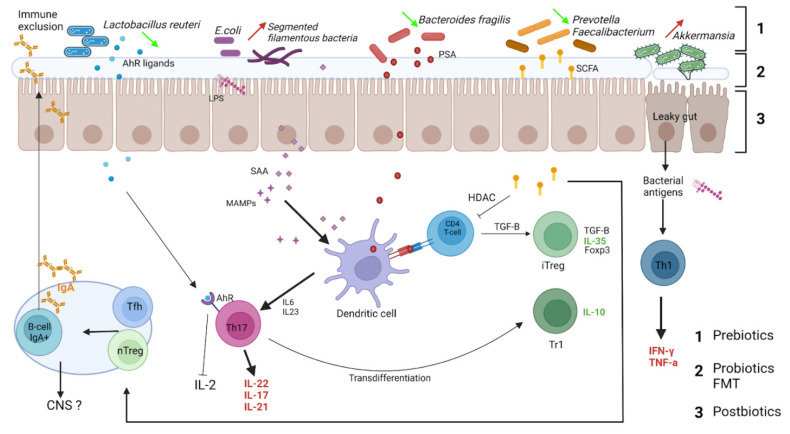Figure 2.
Relevant interactions between microbiota and intestinal immune cells in the context of multiple sclerosis. Gut dysbiosis in MS may participate in the inflammatory environment. Bacteria providing inflammatory signals are increased at the expense of bacteria species harboring regulatory properties. Immune cells arising from the gut can then access extraintestinal tissues and regulate CNS inflammation. Tfh: follicular helper T cells, nTreg: natural regulatory T cell, AhR: aryl hydrocarbon receptor, LPS: lipopolysaccharide, SAA: serum amyloid A, MAMPs: microbiome-associated molecular patterns, PSA: polysaccharide A, SCFA: short-chain fatty acids. Dietary interventions could mitigate these inflammatory signals: 1: Prebiotics, consisting of insoluble fibers, promote the growth of regulatory bacteria. 2: Probiotics can directly normalize local flora. 3: Postbiotics: bioactive molecules secreted by the microbiota activity such as SCFA, glutamine promotes integrity of the epithelial barrier.

